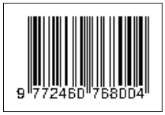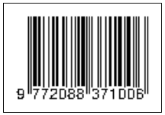Klasifikasi Tingkat Kemurnian Bahan Bakar Minyak Berdasarkan Cepat Rambat Gelombang Menggunakan Algoritma K-Nearest Neighbor
Rangga Pujianto Wijaya(1*), Abdul Rouf(2), Tri Wahyu Supardi(3)
(1) Program Studi Elektronika dan Instrumentasi, FMIPA, UGM, Yogyakarta
(2) Departemen Ilmu Komputer dan Elektronika, FMIPA UGM, Yogyakarta
(3) Departemen Ilmu Komputer dan Elektronika, FMIPA UGM, Yogyakarta
(*) Corresponding Author
Abstract
The need for fuel oil has increased along with the increase of population, the number of vehicles and industries. An increase in demand for fuel oil is used by some people to make a profit by selling mixed fuel oil at the same price as the price set by the government. The purpose of this study is to create a prototype device that can characterize the type of fuel oil and create a classification system to determine the level of fuel purity with 40 kHz ultrasonic waves based on the parameters of wave velocity using the K-Nearest Neighbor (KNN) algorithm.
This device works by using a 40 kHz ultrasonic wave that is connected to an ultrasonic transmitter. The propagated wave will be received by the ultrasonic receiver. The wave received by the receiver will be amplified and connected to the comparator circuit so that it can be processed by a microcontroller. Data obtained using this tool are wave travel time, wave velocity, density, and attenuation. The data used for classification systems using the KNN algorithm is wave velocity.
Classification using the KNN algorithm can identify the level of fuel purity based on the parameters of the wave velocity obtained from ultrasonic wave gauges with an accuracy of 72.50%. Wave velocity which is measured using ultrasonic waves is directly proportional to the actual speed with the largest percentage of deviations that is 0.34%.Keywords
Full Text:
PDFReferences
[1] E. Alwi, D. S. Putra, and H. Khoiri, “Uji Penghematan Bahan Bakar Kendaraan Dengan Sistem Pembatasan Putaran Mesin,” vol. 2, no. 1, pp. 47–54, 2017.
[2] I. Tazi and Sulistiana, “Uji Kalor Bakar Bahan Bakar Campuran Bioetanol Dan Minyak Goreng Bekas,” J. Neutrino, vol. 3, no. 2, pp. 163–174, 2012.
[3] P. Baraldi, F. Cannarile, F. Di Maio, and E. Zio, “Hierarchical K-Nearest Neighbours Classification and Binary Differential Evolution for Fault Diagnostics of Automotive Bearings Operating Under Variable Conditions,” Eng. Appl. Artif. Intell., vol. 56, pp. 1–13, 2016 [Online]. Available: http://dx.doi.org/10.1016/j.engappai.2016.08.011
[4] P. Müller et al., “Scent Classification by K Nearest Neighbors Using Ion-Mobility Spectrometry Measurements,” Expert Syst. Appl., vol. 115, pp. 593–606, 2019.
[5] J. das C. Rodrigues, P. P. R. Filho, E. Peixoto, A. K. N, and V. H. C. de Albuquerque, “Classification of EEG Signals to Detect Alcoholism Using Machine Learning Techniques,” Pattern Recognit. Lett., vol. 125, pp. 140–149, 2019.
[6] S. Mutrofin, A. Izzah, A. Kurniawardhani, and M. Masrur, “Optimasi Teknik Klasifikasi Modified K Nearest Neighbor Menggunakan Algoritma Genetika,” no. September, pp. 130–134, 2014.
[7] X. Wu and V. Kumar, The Top Ten Algorithms in Data Mining. Boca Raton: Taylor & Francis Group, 2009.
[8] M. K. K. Figueiredo, A. V. Alvarenga, and R. P. B. Costa-Félix, “Ultrasonic Attenuation and Sound Velocity Assessment for Mixtures of Gasoline and Organic Compounds,” Fuel, vol. 191, pp. 170–175, 2016 [Online]. Available: http://dx.doi.org/10.1016/j.fuel.2016.11.076
[9] N. B. Prawira and A. Rouf, “Perancangan Alat Ukur Massa Jenis Zat Cair Menggunakan Cepat Rambat Gelombang Ultrasonik,” IJEIS (Indonesian J. Electron. Instrum. Syst., vol. 8, no. 2, p. 143, 2018.
[10] S. Swasoko and A. Rouf, “Rancang Bangun Pembangkit Pulsa Tiga Sensor Ultrasonik Untuk Pendeteksi Kecacatan Beton Berbasis Mikrokontroler,” IJEIS (Indonesian J. Electron. Instrum. Syst., vol. 7, no. 2, p. 197, 2017.
[11] A. Bablani, D. R. Edla, and S. Dodia, “Classification of EEG Data Using K-Nearest Neighbor Approach for Concealed Information Test,” Procedia Comput. Sci., vol. 143, pp. 242–249, 2018 [Online]. Available: https://doi.org/10.1016/j.procs.2018.10.392
[12] S. Faziludeen and P. Sankaran, “ECG Beat Classification Using Evidential K -Nearest Neighbours,” Procedia Comput. Sci., vol. 89, pp. 499–505, 2016 [Online]. Available: http://dx.doi.org/10.1016/j.procs.2016.06.106
[13] Z. S. Badu, “Penerapan Algoritma K-Nearest Neighbor Untuk Klasifikasi Dana Desa,” 2016.
[14] L. B. Marinho, P. P. Rebouças Filho, and V. H. C. de Albuquerque, “Ultrasonic Sensor Signals and Self Organized Mapping with Nearest Neighbors for the Microstructural Characterization of Thermally-Aged Inconel 625 Alloy,” Comput. Ind., vol. 107, pp. 1–10, 2019 [Online]. Available: https://doi.org/10.1016/j.compind.2019.01.009
[15] Y. F. Safri, R. Arifudin, and M. A. Muslim, “K-Nearest Neighbor and Naive Bayes Classifier Algorithm in Determining The Classification of Healthy Card Indonesia Giving to The Poor,” Sci. J. Informatics, vol. 5, no. 1, p. 18, 2018.
[16] F. Borghesan, M. Chioua, and N. F. Thornhill, “Forecasting of Process Disturbances Using K-Nearest Neighbours, with an Application in Process Control,” Comput. Chem. Eng., vol. 128, no. 675215, pp. 188–200, 2019 [Online]. Available: https://doi.org/10.1016/j.compchemeng.2019.05.009
Article Metrics
Refbacks
- There are currently no refbacks.
Copyright (c) 2019 IJEIS (Indonesian Journal of Electronics and Instrumentation Systems)

This work is licensed under a Creative Commons Attribution-ShareAlike 4.0 International License.
View My Stats1







